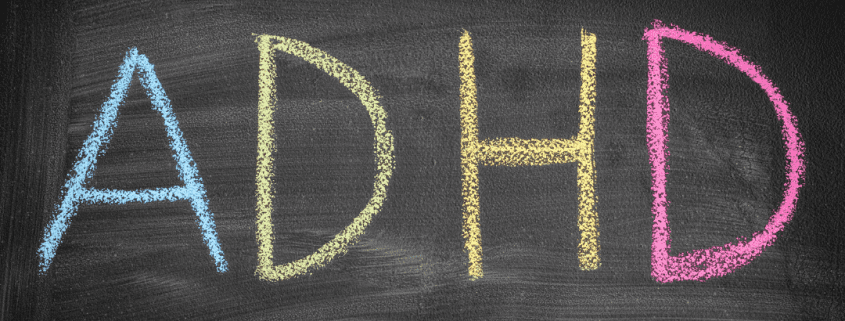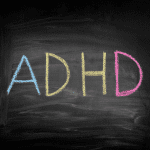ADHD in France: Getting a proper assessment and coordinating with your child’s school) – Part 2

In my last blog post, I went through the current state of ADHD knowledge and assessment in France. In this post, I will explain what is involved in an ADHD assessment, and what to expect from French schools.
The following steps are necessary for a thorough evaluation and diagnosis:
1. Interview with parents including the child’s full medical, psychiatric, social and academic history
2. Interview with the child
3. Completion of questionnaires and behavior checklists
4. Psycho-educational assessment (also called psychological or cognitive testing) is also usually advised. If you have gone to a psychiatrist, the testing will be done by a psychologist whom he/she recommends.
5. Classroom observation is also a plus, but it is not commonly allowed in French schools.

Once a diagnosis is made, the psychiatrist will discuss treatment options. Medications available in France are more limited than in the US; only methylphenidate and related molecules (Ritalin®, Concerta®, and Equasym®) are available. Since the first prescription has to be delivered by a hospital service, it is preferable to see someone affiliated with a hospital. A pediatrician, general practitioner, or private practice psychiatrist can then renew the prescription. Once a year, however, the prescription must be updated at the hospital. The psychiatrist will also, based on the information he or she has gathered, order a language evaluation by an orthophoniste (similar to a speech/language pathologist in the US), in order to determine if your child has any language learning issues, since these are often associated with ADHD. In addition, if there is any grapho-motor (handwriting) or visual-spatial problem, a referral for evaluation with a psychomotricienne or psychomotor therapist (similar to, but not exactly the same as an occupational therapist in the US) will be made. If problems are identified by the orthophoniste or psychomotricienne, therapies in these areas will be prescribed. The services of French orthophonistes are covered by French social security, but those of psychomotriciennes are not.
Some psychiatrists will recommend cognitive behavior therapy for the child, usually done with a psychologist or other counselor. They may also recommend guidance parentale or parent training. Recently, there has been increased recognition that these sorts of treatment are important. One program, called Triple P (Programme de parentalité positive), has been translated into French and is available online. Unfortunately, while these kinds of treatments are almost systematically recommended in the US, they are still unusual in France. In addition, they are not covered by social security and so must be paid for out of pocket. Many international insurance plans pay for these services. Be aware that psychiatrists in France may still recommend classic individual play therapy despite its lack of proven efficacy.
If you are coming to France with a diagnosis of ADHD already established, keep contact, if possible, with your existing physician or psychiatrist. Since it may be difficult to get an appointment with a specialist here, and you are not yet sure of your child’s reaction to the new environment, this ensures some continuity of care. Once you get an appointment with a French psychiatrist, bring all reports, diagnostic evaluations and/or follow-up documents from your home country. While most French psychiatrists do not speak fluent English, they do comprehend written English. If your child takes medication that is available here, there should not be a problem in getting a French prescription. If the medication is not available here, you need to decide whether you want to try switching or if you will obtain refills during regular visits to your home country. If other services (language, non-verbal, psychological, etc.) are necessary or desired, your psychiatrist will probably be able to point you in the right direction. In English, contact SPRINT for a list of professionals who provide services in English to children with ADHD and their families.
Now we get to the difficult situation of school. French schools, overall, are poor at dealing with children with any kind of learning differences or behavioral issues. While a full discussion of this situation is beyond the scope of this post, this issue of accommodation for special needs in French schools, or the lack of such accommodation, will be discussed in other posts on this blog. For a child with ADHD, a standard French classroom can be a challenge, where learning is often neither multimodal nor behavioral, and academic expectations are high. French education professionals often pride themselves on treating all children equally, and might therefore balk at any individualized plan or at changing the rules for one child. Therefore, strategies and accommodations routinely implemented in US classrooms such as allowing a child with ADHD to get up when needed, to manipulate special “fidget materials,” to do fewer exercises in order to show comprehension, to get special “attention” signals from the teacher, and finally, to establish an individualized reinforcement system for good behavior or good efforts to control attention or impulsivity both at school and at home, are often seen as completely out of the question in a French school. French school psychologists are overworked and not present enough in classrooms to be able to help with such plans, nor do most of them practice such an approach.
However, sometimes, such special accommodations are possible and are successfully implemented. It depends on the individual teacher and his/her desire to innovate or cooperate with parents or therapists. While it is obviously important to indicate your involvement and willingness to help, it is generally better to let the teacher come up with solutions, perhaps assisted by your gentle suggestions, rather than “imposing” ideas upon him/her. While active cooperation and consultation between parents, professionals and teachers is the norm in the US, French teachers consider themselves the “bosses” of their classrooms and often resist direction from the outside. In my professional experience, French teachers have come up with great plans for ADHD children and have very effectively implemented them; however, some do not consider this their role. On a positive note, I have found that for a subset of children with ADHD, the increased structure, stringent rules and high expectations in a French classroom are actually very beneficial and provide them with much-needed and clear limits and boundaries.
As I mentioned in the first post, the French organization HyperSupers-TDAH France provides a great deal of useful information about ADHD on its website. The association has published brochures to better inform others about ADHD, including one specifically for teachers, and holds an annual meeting where new research on ADHD is presented. Furthermore, this group helps in advocacy and in promoting legislation concerning education and persons with ADHD and handicaps in general. In addition, HyperSupers-TDAH France has recently begun to support independent research projects.
Organizations mentioned in the text:
Programme de parentalité positive
-Mia Vieyra
About Mia Vieyra
Mia Vieyra is an American clinical psychologist, who has a large private practice in Paris, where she has practiced since 1992. She sees children, adolescents and adults. One of her areas of expertise is the assessment and treatment of ADHD. She is a longstanding AAWE member.










Leave a Reply
Want to join the discussion?Feel free to contribute!